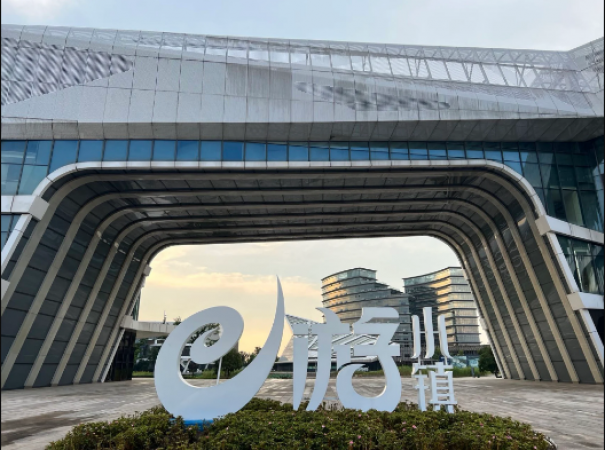
Beijing: For example, a company might only be required to pay 10% of the taxes it would have to pay to the city during the first two years it operated in the industrial estate. Every time a business starts a new project, the management committee of E-Game Town also awards subsidies.
A three million yuan reward from the Shaoxing government is also anticipated for an E-Game Town startup that eventually goes public on the mainland.
In addition to these subsidies, some E-Game Town employees assist in reviewing game developers' work before applications are submitted to the National Press and Publication Administration, the industry regulator.
Also Read: Apple Watch Ultra: A Bulky, Expensive, But Effective Tool for the Adventurous
The monthly list of new game approvals from the [regulator] typically includes two to three titles that were pre-screened here, according to an E-Game Town employee with the last name Meng who declined to give his full name because he was not authorised to speak to the media.
In the largest video game market in the world, where Shaoxing competes with bigger cities like Shanghai, Hangzhou, Shenzhen, and Beijing in a sector that continues to see tighter regulation, the stakes are high for the city to draw more businesses.
According to a May report by market research firm Niko Partners, China's total video game revenue, which includes mobile, PC, and console games, is predicted to increase to US$47.73 billion this year from US$45.49 billion in 2021.
The state-backed China Audio-Video and Digital Publishing Association's Game Publishing Committee reported sales of 296.5 billion yuan in 2021, up 3.7% from 2020 - the slowest sales growth since 2018.
The decline last year was brought on by Chinese regulators' decision to prohibit teenagers under the age of 18 from playing video games for more than three hours per week in August, which was followed shortly thereafter by a countrywide licence freeze for new games.
Companies in E-Game Town include the Hong Kong-listed CMGE Technology Group and Zhejiang Jinke Tom Culture Industry Co as well as the Shenzhen-listed Century Huatong Group and Zhejiang Jinke Tom Culture Industry Co. The industrial estate is home to privately held Yushi Network, which was established by former Alibaba Group Holding personnel. The South China Morning Post is owned by Alibaba.
According to Zhang Weizhang, CEO of Hangzhou-based Jinke Tom Culture, his business moved into E-Game Town three years ago to take advantage of its location and cost-effectiveness.
We turned exclusively into a mobile internet company in 2019," Zhang claimed. Despite the fact that other staff members have jobs in other cities across the globe, "it was logical and justifiable for us to move here."
Also Read: Chip industry is concerned about the possibility of a blockade or attack from China
Jinke Tom Culture is the owner of the popular Talking Tom & Friends franchise producer Outfit7 in Slovenia. Anthropomorphic animal characters that mimic human speech are present in the apps in this franchise.
According to Zhang, the company wants to "become the Disney of the mobile internet era."
Approximately 500 million yuan was spent on a new office building in E-Game Town by Yushi Network, which was founded in 2015. Later this year, the construction should be finished. The company's workforce has increased by a factor of at least six over the years from its initial base of about 100 employees.
While comparisons between Shaoxing's initiatives and southern tech hub Shenzhen's efforts to establish a global esports hub are possible, the E-Game Town initiative more closely resembles Montreal, the most populous city in the Canadian province of Quebec.
Like Shaoxing, Montreal's economy expanded thanks to manufacturing sectors like apparel and electronics. However, Montreal launched a campaign to draw significant publishers and developers in the early 1990s in an effort to establish the city as the "Hollywood of Video Games."
In order to entice companies like Ubisoft Entertainment, Electronic Arts, Square Enix, and even China's Tencent Holdings and miHoYo, Montreal and the federal government of Canada provided generous tax credits.
To entice more top-tier game developers and publishers to open offices in E-Game Town, Shaoxing still has a ways to go.
As examples, China's No. 2 games publisher NetEase and Tencent, which manages the world's largest video game industry by revenue, are currently more focused on growing operations abroad due to dwindling domestic demand, zero-Covid-19 curbs, and the country's failing economy.
Also Read:Huobi's Chinese founder sells a majority stake to a Hong Kong fund
Before the local government began its push into the video game industry more than seven years ago, Shaoxing was widely regarded as one of Zhejiang's most enchanting river towns. The city, which occupies an area of more than 8,200 square kilometres, is home to 4,000 stone bridges, a system of canals, and traditional white homes with grey slate roofs.
Shaoxing is located 20 minutes to the east of Hangzhou's West Lake and approximately 1.5 hours by train south of Shanghai. The city is three hours by car from Shanghai and an hour from Hangzhou, respectively.